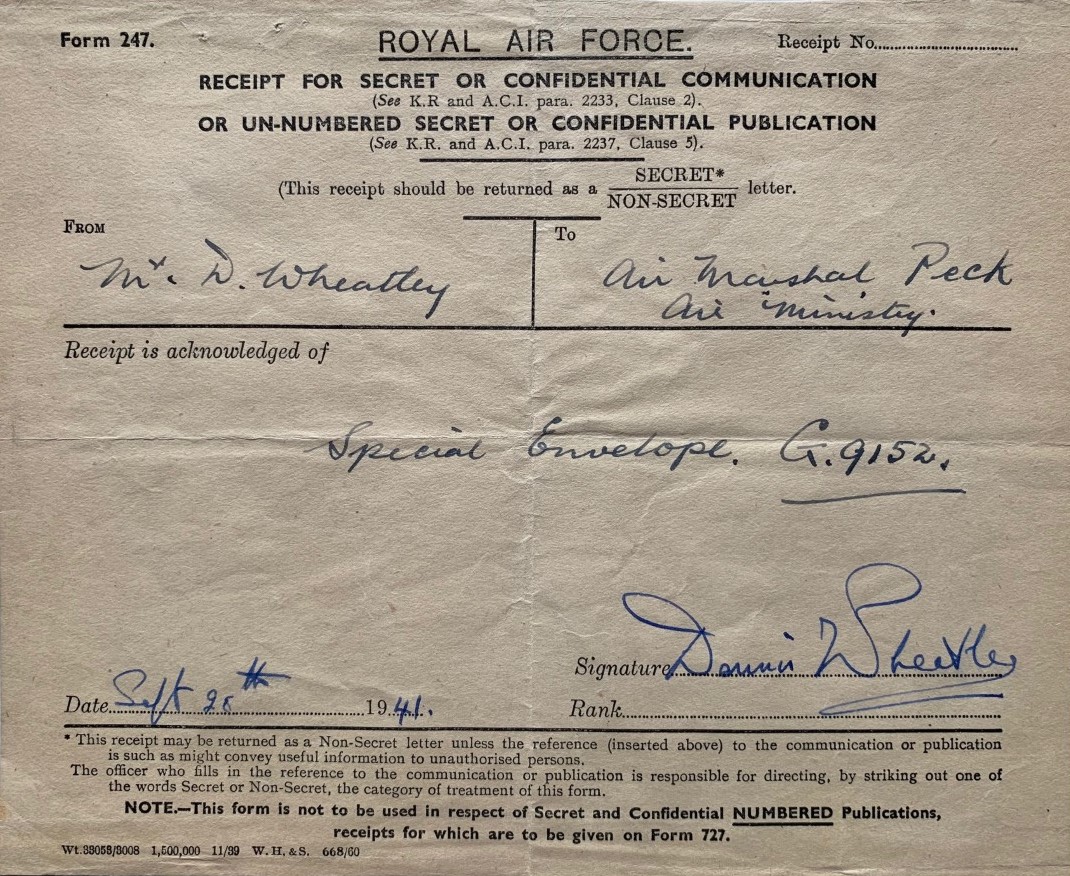DW wrote a paper on 'Total War' in December 1940, and returned to the theme in December 1941, when he wrote a much longer paper on the subject.
This was in many ways DW's most comprehensive paper - analysing the nature of the conflict, putting it in context, and discussing how resources of all kinds would have to be marshalled if it was to be won.
DW distinguished between 'tribal wars' and 'civil wars'; 'tribal wars' being essentially territorial, wars where there were rules governing behaviour, and 'civil wars' being essentially ideological, where no compromise was possible. He placed World War II firmly in the latter category.
DW considered there were three instruments of Total War - propaganda, intelligence and armed force - and he considered that none of these should operate independently, with the whole being greater than its parts.
The paper then went on to consider how the country could most effectively marshal its resources to win the war.
The paper was wide ranging and included ideas across the whole spectrum from religion to strategy and to economics; in the latter area it contained proposals to release men from conscription until they were actually needed - since otherwise many small businesses would disintegrate, and DW considered that these would be the lifeblood of the future.
It was a hard hitting paper, and many parts were controversial and were excluded from the public edition.
For example, in the unpublished version, DW discussed the pros and cons of sinking a neutral ship if this would bring in the neutral country and speed up the war, and a proposition that both enemy leaders and neutral leaders with enemy sympathies should be eliminated so long as the assassins were not caught (see the fourth set of exhibits above).
By the end of this period, as the final exhibit shows, DW was in an extraordinarily privileged position. Although still a civilian, he was in direct communication with some of the most senior commanders of the war effort, such as Air Marshal Peck, who was later to become a lifelong friend. Furthermore he had moved from being a civilian receiving no secret information to being so highly trusted that such men were happy to share with him information of a classified nature. Unusual in the extreme !
References : 'Stranger Than Fiction' Chapter 10.
'Drink and Ink' Chapters 21-22.
Phil Baker pp 410 - 412.















